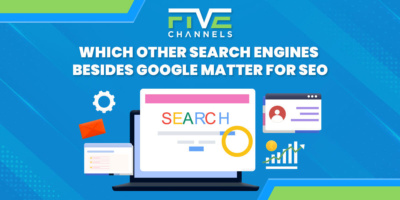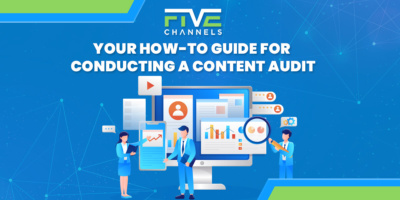We all know that getting your landing pages and your product pages at the top of Google’s ranking is important, but what’s the best way to do this? Do you really know what’s going to get you to the top?
There’s a lot of competition out there. Getting ahead is all about knowing the best way.
There are a lot of websites out there that claim to have the best tips.
And they probably do have great ones.
But today, we’re going to share with you the knowledge that we’ve gathered over time. We’re giving you the e-commerce best practices for SEO.
1. eCommerce Best Practices: Keyword Research
Whenever you build a building, you have to lay a foundation.
Keyword research is this foundation.
Just like any other kind of SEO, e-commerce best practices for SEO start with keyword research.
It’s like sending a scout ahead of a war party. Without recon, you’re forging ahead into the thick fog of war.
But where to start…
The main keywords will be utterly obvious. Product, brand, category.
But, your competitors are going to be all over those. Some of them may have bigger budgets, too.
So they could even outrank you for those keywords!
Low competition is actually going to be your goal here (at first).
You want to look for keywords that have great volume, will convert, don’t have that competitor smell, and are quick for ranking.
So, to do this, think like an affiliate marketer as part of eCommerce best practices for SEO.
Identify a problem your customers might have and solve it.
Then create content that targets the people with those problems.
Use Google’s Auto-Suggest as a Cheap Way to Research Keywords
One of the best formulas for finding e-commerce keywords is “the best x for y.”
Essentially, if you sold essential oils you would use the formula like this:
“The best essential oils for [insert problem]”
Essential oils solve a variety of problems for people, whether real or imagined.
But to find the most popular problems, all you have to do is start searching in Google.
Type “The best essential oils for” and you’ll get a host of keywords to start researching.
eCommerce Best Practices For SEO: Think of Bloggers as Competition
Ok, maybe not direct competition in terms of product. But you will be competing for the same keywords as people who blog about your product.
You have full permission to steal keywords from these people.
Their competition will probably be less fierce than direct competitors. And these keywords will have a lot of volume.
Let’s take Essential Oils as our example again, or how about “aromatherapy certification”.
Look up “aromatherapy certification” in Google.
Take the first actual website that ranks. Right now that’s Aromahead Institute.
Now take that URL and plug it into whatever keyword research tool you’re using.
You should be able to see what that website is ranking for.
A good tool should have a lot of filter options. You should be able to search keywords a website is ranking for as well.
You could use these keywords for your product pages. And that would be great.
But you really should have a blog as well as part of eCommerce best practices for SEO.
SEO friendly content will get you ranked better than SEO friendly product pages.
The average Google first page has an average of 1890 words. That means you need content beyond product descriptions on your site.
2. Next Focus Your On-Page Optimization
Before you go for off-page optimization (link building) you need to focus on on-page optimization.
This is the second layer of an SEO building after keyword research.
It’s the main chunk.
There are eight main areas of focus for on-page optimization. And these are all eCommerce best practices for SEO as well.
a. Keyword Optimization
After you’ve researched your keywords, you need to know where to use them on your pages.
There are a few locations that are advantageous to keywords:
- URLs
- The Page Title
- Meta Title And Description
- Headers
- Image Alt Tags
- Sub-headers (H2, H3…)
- Image File Names
- Paragraph Copy
- Product Descriptions
The point of a top level domain name or URL is that it’s easy to remember.
You should have your keyword there, of course. But it should be easy to tell what’s coming at you when you paste it into the toolbar.
Treat your meta title and descriptions like an ad. You want people to see those and click through.
Cohesion and logic will always win people over when it comes to keywords.
b. Paying Attention to Site Structure is Huge for eCommerce Best SEO Practices
You may never have guessed it, but Google will look at the structure of your site.
It’s like a building inspector coming in and checking that your building is sound.
And the way Google tests this is by ranking you for usability.
That’s right, your site structure affects your site’s usability.
It seems common sense once you think about it.
Creating a flat architecture for your website is within the e-commerce best practices for SEO.
This means that it should require very few clicks to get from homepage to product page.
This should also be true for any landing pages you choose.
This thing called “link juice” exists. And you want it to flow as quickly as it can from your home or landing page to your product page.
c. Mobile Is Becoming King for eCommerce Best Practices and SEO
Everything is going mobile these days. Everyone wants to do their business on the fly.
This is why Google now ranks mobile websites higher than traditional websites.
And, as things stand, you cannot just copy and paste your content from a desktop platform to a mobile platform.
That spells all kinds of crazy for your SERPs.
But, here’s the salvation. You can code one website that works on multiple devices. You don’t need a site for mobile and a site for desktop anymore.
So, no duplicate content!
But, make sure you do re-tool your site for mobile. This is paramount to e-commerce best practices in SEO.
If you want to get your e-commerce site to the top of Google’s rankings, use our e-commerce best practices for SEO.
Owner and Chief Marketing Officer, Jason Hall, and his team specialize in creating brand awareness / traffic and lead generation / marketing funnel and conversion optimization, while utilizing the appropriate marketing channels available within your industry. With diverse clients throughout the world, Jason's team is well connected within many industries to assist with your marketing strategies. With no long term contracts and various levels of service, Jason's team will increase the quality of your online traffic, leads, and sales.
About the author...
Located in the heart of the Emerald Coast - Destin, FL, founder and Chief Marketing Officer, Jason Hall, and his team specialize in creating brand awareness / traffic and lead generation / marketing funnel and conversion optimization / and PR campaigns, while utilizing the appropriate marketing channels available within your industry.
With diverse clients throughout the world, Jason's team is well connected within many industries to assist with your marketing strategies. With no long term contracts and various levels of service, Jason's team will increase the quality of your online traffic, leads, and sales.










